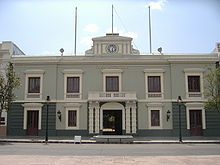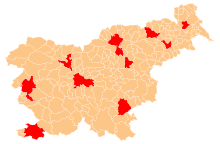Municipality
**1. Powers and Autonomy of Municipalities:**
– Municipalities have varying levels of autonomy.
– They can impose taxes on individuals and corporations.
– Some European countries allow municipalities to provide public services through municipally-owned companies.
– Municipalities can receive funding from the state.
– Powers range from virtual autonomy to complete subordination to the state.
**2. Terminology in Various Countries:**
– New York City and its boroughs are municipalities.
– Terms like hromada (Ukrainian), gmina (Polish), Gemeente (Dutch), Gemeinde (German), and Δήμος (demos) are used in different countries.
– Moldova and Romania have municipalities (municipiu) and communes (comună).
– In some countries, the term ayuntamiento refers to a municipality’s administration building.
– English-speaking countries use terms like local government area (LGA) in Australia.
**3. Municipalities in Different Countries:**
– India’s municipalities are urban local bodies that administer cities with populations of 100,000 or more.
– The UK transitioned from using the term municipality to district or council area.
– Jersey’s municipalities refer to officials in parishes.
– Trinidad and Tobago has municipalities like Chaguanas and San Fernando.
– The US defines municipalities as local government units formed by municipal charter.
**4. Chinese-Speaking Municipalities:**
– In the People’s Republic of China, direct-administered municipalities have equal status to provinces.
– The Republic of China (Taiwan) has special municipalities with equal status to provinces.
– Examples include Beijing, Shanghai, and Taipei.
**5. Characteristics of Municipalities in Specific Countries:**
– Municipalities in India, the Philippines, Portugal, Puerto Rico, and Sweden each have unique characteristics related to their administrative structure, election processes, and local government functions.
A municipality is usually a single administrative division having corporate status and powers of self-government or jurisdiction as granted by national and regional laws to which it is subordinate.


The term municipality may also mean the governing body of a given municipality. A municipality is a general-purpose administrative subdivision, as opposed to a special-purpose district.
The English word is derived from French municipalité, which in turn derives from the Latin municipalis, based on the word for social contract (municipium), referring originally to the Latin communities that supplied Rome with troops in exchange for their own incorporation into the Roman state (granting Roman citizenship to the inhabitants) while permitting the communities to retain their own local governments (a limited autonomy).
A municipality can be any political jurisdiction, from a sovereign state such as the Principality of Monaco, to a small village such as West Hampton Dunes, New York.
The territory over which a municipality has jurisdiction may encompass:
- only one populated place such as a city, town, or village
- several such places (e.g., early jurisdictions in the U.S. state of New Jersey (1798–1899) as townships governing several villages, municipalities of Mexico, municipalities of Colombia)
- only parts of such places, sometimes boroughs of a city, such as the 34 municipalities of Santiago, Chile.
